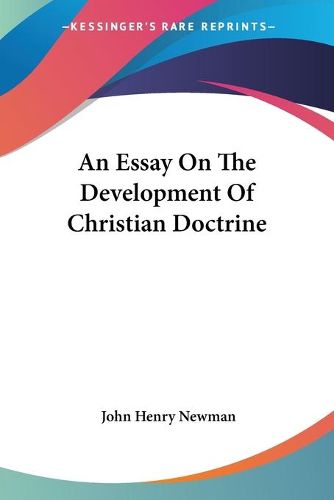Readings Newsletter
Become a Readings Member to make your shopping experience even easier.
Sign in or sign up for free!
You’re not far away from qualifying for FREE standard shipping within Australia
You’ve qualified for FREE standard shipping within Australia
The cart is loading…






John Henry Newman (1801-1890) remains one of the best-known and influential English churchmen of the nineteenth century. Ordained as a priest in the Anglican Church in 1825, he converted to Roman Catholicism, being ordained as a priest and later appointed cardinal. His works include Grammar of Assent (1870) and Apologia Pro Vita Sua (1865-1866) as well as this Essay (1845), written in the midst of his own religious transformation. He discusses his theory of the development of Christian dogma: ‘from the nature of the human mind, time is necessary for the full comprehension and perfection of great ideas …the longer time and deeper thought for their full elucidation’. By showing how fidelity to timeless truths coexisted in Christianity together with deeper and more developed understanding over time, Newman provides a helpful personal and theological apology for the teaching and practice of Catholicism against its detractors.
$9.00 standard shipping within Australia
FREE standard shipping within Australia for orders over $100.00
Express & International shipping calculated at checkout
Stock availability can be subject to change without notice. We recommend calling the shop or contacting our online team to check availability of low stock items. Please see our Shopping Online page for more details.
John Henry Newman (1801-1890) remains one of the best-known and influential English churchmen of the nineteenth century. Ordained as a priest in the Anglican Church in 1825, he converted to Roman Catholicism, being ordained as a priest and later appointed cardinal. His works include Grammar of Assent (1870) and Apologia Pro Vita Sua (1865-1866) as well as this Essay (1845), written in the midst of his own religious transformation. He discusses his theory of the development of Christian dogma: ‘from the nature of the human mind, time is necessary for the full comprehension and perfection of great ideas …the longer time and deeper thought for their full elucidation’. By showing how fidelity to timeless truths coexisted in Christianity together with deeper and more developed understanding over time, Newman provides a helpful personal and theological apology for the teaching and practice of Catholicism against its detractors.